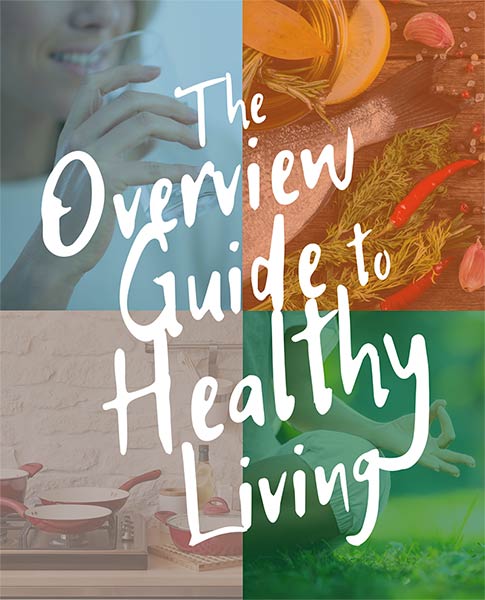Heart disease is the leading cause of death worldwide. According to the CDC, in the United States heart disease is responsible for 1 in every 4 deaths (CDC, 2020). Conventional medicine offers a host of medications to treat heart disease: from anticoagulants to beta blockers, aspirin, ACE inhibitors, and cholesterol-lowering medication; the list of pharmaceutical drugs used for heart disease it long. There are also medical procedures like bypass surgery and coronary angioplasty. Yet, none of these approaches treat the root causes of heart disease.
Alternative therapies for heart disease are a fast-growing complementary approach to treating heart disease, as evidenced by a flourishing peer-review literature. This essay aims at reviewing one by one the alternative therapies suggested by Karen Fontaine in her book Complementary & Alternative Therapies For Nursing Practice, Pearson (2019).
Animal-assisted therapy is a type of alternative therapy that involves the use of companion animals (most often dogs, but also cats, goats, and horses) that are trained to be of comfort. Animal-assisted therapy is utilized with success in hospitals and facilities like memory care, nursing homes and hospices. Studies show that patients exposed to therapy pets evince a decrease in the stress hormones (adrenaline and noradrenaline) and an increase in endorphins (Marcus D. A., 2013). While the majority of published peer-review studies are done in cancer care, pediatric and adult pain management, and recovery from stroke, the leap toward heart disease is a short one. High levels of catecholamines are associated with the worsening of heart conditions, ranging from damage of cardiac tissue following ischemia to ventricular hypertrophy. Therefore, animal-based therapy can be a useful alternative treatment for patients affected by heart disease (Prichard, B. N. et al, 1991).
Aromatherapy is another alternative therapy recommended by Fontaine. A few studies were done to assess the beneficial effects of essential oils (lemon and geranium) on heart patients. The studies aimed at studying how anxiety levels in this population respond to the use of essential oils (EO), and the results were very positive. Geranium essential oil is effective in reducing anxiety in patients with acute myocardial infarction (Shirzadegan, R. et al. 2017). The use of lemon EO in patients with acute myocardial infarction proved beneficial in regulating heart rate, lowering blood pressure, anxiety, and it positively influenced ST segment and T-wave changes (Rambod, M. et al, 2020).
While the evidence is mixed and more research is needed, some studies show that biofeedback can be used to successfully affect heart rate variability (Moravec, C. S. et al., 2011).
Exercise is important to health and wellbeing. With regards to heart patients, exercise increases strength, oxygen delivery to tissues, it ameliorates lipid profile and body composition and it decreases angina and blood pressure. Yoga is also associated with reduction in C-reactive protein and increased heart rate variability (Silveira & Stein 2019). Several studies that have been conducted on the effects of T’ai chi and qigong on patients with heart disease show that T’ai chi has positive effects on stress, depression and anxiety as well as on blood pressure (Hartley L. et al., 2014). There is also a beneficial effect on lipid levels (Wang, C. et al., 2010).
Herbs are a great adjuvant in the treatment of heart disease. The literature on the use of herbal remedies for the heart is prolific, especially with regards to aged garlic extract (AGE). Garlic supplementation positively affects heart health: garlic reduces blood pressure and cholesterol; it also favorably affects C-reactive protein, pulse wave velocity and coronary artery calcium buildup, which are all biomarkers of atherosclerosis (Varshney & Budoff, 2016). Ginger is a cardiotonic, anticoagulant and antihypertensive. It is also effective at lowering lipid profile (Fakhri S. et al., 2020). Hawthorn supplementation has proven extremely beneficial for the management of heart disease. Its oligomeric procyanidins have hypotensive effects; they also lower lipids and blood sugar levels. In addition, they relieve anxiety and have immunomodulating properties. Hawthorn has anti-inflammatory properties, and it inhibits angiotensingconverting enzyme (ACE), while improving antioxidant activity and blood flow (Orhan I. E., 2018).
Meditation and mindfulness are helpful in lowering perceived stress, as well as anxiety and depression, which all play a role in heart disease. A Brazilian study also showed that meditation decreased sympathetic activity in patients with heart failure (Silveira & Stein 2019).
Nutritional supplements have an important role in heart health, and there is extensive research to prove the efficacy of many nutriceuticals. CoQ10 has been well-studied and should be part of every heart patient’s care plan. CoQ10’s main role is to assist ATP production (Sharma A. et al., 2016). It reduces risk of reoccurring heart attacks. It also lowers blood pressure and improves cellular oxygen utilization (Pollen & Yeung, 2014). Fish oil provides important omega-3 essential fatty acids that are anti-inflammatory and help improve lipid profile. Additionally, fish oil helps stabilize cell membranes and suppress cardiac arrhythmia (de Leiris, J. et al., 2009). L-carnitine is an important amino acid for heart health: it reduces inflammation and oxidative stress. It is also needed for the transport of long chain fatty acids into the mitochondria. L-carnitine protects the integrity of the endothelial lining, the release of enzymes, and it is also a calcium chelator (Wang, Z. Y. et al., 2018). Minerals are very important for heart health as they are needed to regulate muscle contractions and relaxation. (Voultsos P. et al., 2021). Vitamin B6 exerts cardioprotective antioxidant activity, and vitamin B12 improves lipid profile and lowers homocysteine levels, which are associated with cardiovascular disease. Vitamin C prevents oxidation of LDL-protein, reducing the incidence of atherosclerosis (Moser & Chun, 2016). Vitamin E significantly reduces serum cardiac enzymes and is a powerful antioxidant. It is more effective when used in conjunction with L-carnitine (Huwait E. A., 2019). A prospective study from Li et al. (2017) shows that tea consumption is associated with lower risk of heart disease. Beta-carotene is another important nutrient for the management of heart disease. Its high antioxidant activity protects cardiac tissue, and it is associated with a reduction of atherosclerosis (Tavani & La Vecchia, 1999). Lastly, plant sterols were included in Fontaine’s recommendation due to their ability to lower cholesterol and improve lipid profile (Malhotra A. et al., 2014).
I thoroughly enjoyed the research involved in writing this essay, and I would like to add one therapy not included by Fontaine in her book that in my opinion is worth mentioning: music therapy. While more research on the beneficial effects of music therapy on heart disease is needed, preliminary studies show that music therapy has beneficial effects on heart disease by lowering blood pressure and decreasing angina (Koelsch & Jäncke, 2015).
Reference
CDC. (2020, September 8). Heart Disease Facts | cdc.gov. Centers for Disease Control and Prevention. https://www.cdc.gov/heartdisease/facts.htm#:~:text=Heart%20Disease%20in%20the%20United%20States%201%20Heart
de Leiris, J., de Lorgeril, M., & Boucher, F. (2009). Fish oil and heart health. Journal of cardiovascular pharmacology, 54(5), 378–384. https://doi.org/10.1097/FJC.0b013e3181af6c56
Fakhri, S., Patra, J. K., Das, S. K., Das, G., Majnooni, M. B., & Farzaei, M. H. (2020). Ginger and Heart Health: From Mechanisms to Therapeutics. Current molecular pharmacology, 10.2174/1874467213666201209105005. Advance online publication. https://doi.org/10.2174/1874467213666201209105005
Hartley, L., Flowers, N., Lee, M. S., Ernst, E., & Rees, K. (2014). Tai chi for primary prevention of cardiovascular disease. The Cochrane database of systematic reviews, (4), CD010366. https://doi.org/10.1002/14651858.CD010366.pub2
Huwait E. A. (2019). Combination of vitamin E and L-carnitine is superior in protection against isoproterenol-induced cardiac injury: histopathological evidence. Folia morphologica, 78(2), 274–282. https://doi.org/10.5603/FM.a2018.0070Top of Form
Koelsch, S., & Jäncke, L. (2015). Music and the heart. European heart journal, 36(44), 3043–3049. https://doi.org/10.1093/eurheartj/ehv430
Li, X., Yu, C., Guo, Y., Bian, Z., Si, J., Yang, L., Chen, Y., Ren, X., Jiang, G., Chen, J., Chen, Z., Lv, J., Li, L., & China Kadoorie Biobank Collaborative Group (2017). Tea consumption and risk of ischaemic heart disease. Heart (British Cardiac Society), 103(10), 783–789. https://doi.org/10.1136/heartjnl-2016-310462
Malhotra, A., Shafiq, N., Arora, A., Singh, M., Kumar, R., & Malhotra, S. (2014). Dietary interventions (plant sterols, stanols, omega-3 fatty acids, soy protein and dietary fibers) for familial hypercholesterolaemia. The Cochrane database of systematic reviews, 2014(6), CD001918. https://doi.org/10.1002/14651858.CD001918.pub3
Marcus D. A. (2013). The science behind animal-assisted therapy. Current pain and headache reports, 17(4), 322. https://doi.org/10.1007/s11916-013-0322-2
Moravec, C. S., & McKee, M. G. (2011). Biofeedback in the treatment of heart disease. Cleveland Clinic journal of medicine, 78 Suppl 1, S20–S23. https://doi.org/10.3949/ccjm.78.s1.03
Moser, M. A., & Chun, O. K. (2016). Vitamin C and Heart Health: A Review Based on Findings from Epidemiologic Studies. International journal of molecular sciences, 17(8), 1328. https://doi.org/10.3390/ijms17081328
Orhan I. E. (2018). Phytochemical and Pharmacological Activity Profile of Crataegus oxyacantha L. (Hawthorn) – A Cardiotonic Herb. Current medicinal chemistry, 25(37), 4854–4865. https://doi.org/10.2174/0929867323666160919095519
Pollen K. Yeung, P. T. (2014). Coenzyme Q10 for Cardiovascular Prevention. Cardiovascular Pharmacology: Open Access, 03(01). https://doi.org/10.4172/2329-6607.1000e125
Prichard, B. N., Owens, C. W., Smith, C. C., & Walden, R. J. (1991). Heart and catecholamines. Acta cardiologica, 46(3), 309–322.
Rambod, M., Rakhshan, M., Tohidinik, S., & Nikoo, M. H. (2020). The effect of lemon inhalation aromatherapy on blood pressure, electrocardiogram changes, and anxiety in acute myocardial infarction patients: A clinical, multi-centered, assessor-blinded trial design. Complementary therapies in clinical practice, 39, 101155. https://doi.org/10.1016/j.ctcp.2020.101155
Sharma, A., Fonarow, G. C., Butler, J., Ezekowitz, J. A., & Felker, G. M. (2016). Coenzyme Q10 and Heart Failure: A State-of-the-Art Review. Circulation. Heart failure, 9(4), e002639. https://doi.org/10.1161/CIRCHEARTFAILURE.115.002639
Shirzadegan, R., Gholami, M., Hasanvand, S., Birjandi, M., & Beiranvand, A. (2017). Effects of geranium aroma on anxiety among patients with acute myocardial infarction: A triple-blind randomized clinical trial. Complementary therapies in clinical practice, 29, 201–206. https://doi.org/10.1016/j.ctcp.2017.10.005
Silveira, A., & Stein, R. (2019). Evidence-Based Alternative Therapies that “Touch the Heart”. Arquivos brasileiros de cardiologia, 113(6), 1059–1061. https://doi.org/10.36660/abc.20190719
Tavani, A., & La Vecchia, C. (1999). Beta-carotene and risk of coronary heart disease. A review of observational and intervention studies. Biomedicine & pharmacotherapy = Biomedecine & pharmacotherapie, 53(9), 409–416. https://doi.org/10.1016/S0753-3322(99)80120-6
Varshney, R., & Budoff, M. J. (2016). Garlic and Heart Disease. The Journal of nutrition, 146(2), 416S–421S. https://doi.org/10.3945/jn.114.202333
Voultsos, P., Bazmpani, M. A., Papanastasiou, C. A., Papadopoulos, C. E., Efthimiadis, G., Karvounis, H., Kalogeropoulos, A. P., & Karamitsos, T. D. (2021). Magnesium disorders and prognosis in heart failure: A systematic review. Cardiology in review, 10.1097/CRD.0000000000000397. Advance online publication. https://doi.org/10.1097/CRD.0000000000000397
Wang, C., Bannuru, R., Ramel, J., Kupelnick, B., Scott, T., & Schmid, C. H. (2010). Tai Chi on psychological well-being: systematic review and meta-analysis. BMC complementary and alternative medicine, 10, 23. https://doi.org/10.1186/1472-6882-10-23
Wang, Z. Y., Liu, Y. Y., Liu, G. H., Lu, H. B., & Mao, C. Y. (2018). l-Carnitine and heart disease. Life sciences, 194, 88–97. https://doi.org/10.1016/j.lfs.2017.12.015

